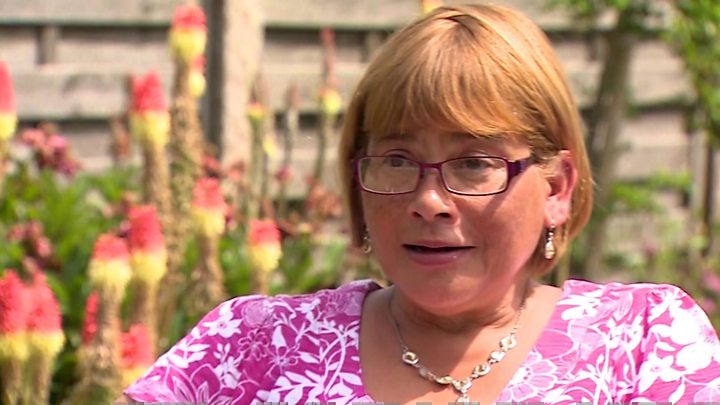


Image copyright
Emma Russell
It is a rare and welcome moment to be able to say something positive about the treatment of Covid-19.
Until this week there was no medicine proven to save lives. Now we have dexamethasone, which cuts the risk of death for patients on a ventilator by a third, and for those on oxygen by a fifth.
I seldom use the term “breakthrough”, but it is worth it here.
It came about due to the persistence and single-mindedness of a small team at Oxford University, the co-operation of hospitals across the UK and the agreement of thousands of patients and their families.
The study that dexamethasone is part of is called Recovery – Randomised Evaluation of Covid-19 Therapy. Clinical trials usually take months, even years to get under way and involve a few hundred patients. The Recovery trial was set up in nine days, and has recruited 11,500 Covid patients in 175 hospitals across the UK.
Speed was vital in order to catch the rising wave of hospital admissions here and to do so before doctors were overwhelmed.
The UK has had Europe’s worst coronavirus outbreak with a terrible death toll. But that has also meant there were sufficient patient numbers here to create what is the world’s biggest trial of Covid-19 treatments.
The trial is led by Prof Peter Horby, who had spent recent years looking at how best to prepare for and respond to disease X, an unknown pathogen that could cause a pandemic.
He told me he’d been frustrated that, during the last pandemic, of H1N1 swine flu, there was a “massive failure to do proper drug trials” and they emerged from it with “zero evidence” about whether any treatments actually worked.
Horby and fellow lead investigator Prof Martin Landray were determined that would not happen with coronavirus.
They decided to keep the trial simple. They would test a small number of repurposed or experimental drugs and ask one question – do they cut the risk of death?
One of those drugs under evaluation in the randomised trial was low-dose dexamethasone, an anti-inflammatory steroid which has been in use since the early 1960s.
This was considered risky. At the start of the pandemic, most international guidelines strongly discouraged the use of steroids for Covid-19.
Steroids had been tried during outbreaks of two other deadly coronaviruses, Sars and Mers, with mixed results.
Dexamethasone is an immunosuppressive drug and there were fears it could make the illness worse, prolonging the infection, and increasing the likelihood of patients needing a ventilator.
“We had some senior doctors writing to us saying, ‘You really shouldn’t be doing this,’ and that dampening down the immune system in patients trying to fight an infection was probably not a wise thing to do,” says Landray. “The reality was that nobody knew whether dexamethasone would be helpful or harmful.”
What was missing, until now, was a randomised trial which was big enough to reach firm conclusions. This meant that some of the patients received dexamethasone, and their life or death outcomes were compared to those who did not.
As the BBC’s medical correspondent, I have reported on global disease threats such as bird flu, swine flu, Sars and Mers – both coronaviruses – and Ebola. You could say I’ve been waiting much of my career for a global pandemic. And yet when Covid-19 came along, the world was not as ready as it could have been. Sadly, we may have to live with coronavirus indefinitely. Here, I will be reflecting on that.
The Recovery team was not expecting to release any results until July. But a week ago the data on dexamethasone came through.
The findings were so good that they spent the next few days trying to break them. Did they really stack up? Was the data robust? Only when convinced the results were genuine did they rush out the findings.
There are two distinct phases in coronavirus infection. Most people only undergo the first, where the virus invades the body and the immune system mounts an effective response.
But for a minority, the disease alters about a week after infection. The immune system begins to overreact and cause inflammation. At this point it is not the virus, but the body’s own response to infection which causes damage in the lungs and beyond.
Image copyright
Emma Russell
For some Covid patients the immune system can overreact and damage the lungs
The trial found that dexamethasone helped only those hospital patients who needed oxygen or were on a ventilator. It appears to dampen the immune response, giving the lungs a better chance to recover
It is not a magic bullet. On the Covid trial, 40 out of every 100 ventilated patients died. These were intensive care patients who were sedated and put on invasive ventilation, a machine that takes over your breathing for you. Dexamethasone reduced that number to 28, saving one life for every eight patients treated.
For those on oxygen 25 out of every 100 patients died, but the drug cut that to about 20 in a 100.
That is still a very high death toll. But it is a start and it will give hope to doctors, patients and their families. Better medicines may follow as a result.
Overnight the drug became the standard of care and was given to all NHS Covid patients on oxygen or a ventilator. The World Health Organization called it a “lifesaving scientific breakthrough”, not least because the drug is extremely cheap and used across the world for a range of conditions.
The results were greeted with some scepticism in the US, where several experts said they would only accept them once all the data had been published and peer reviewed.
In truth, top-line results of trials are often released at medical conferences, with full disclosure later. The Oxford team say they will publish the results within the next few weeks.
Image copyright
Recovery
The 20-strong Recovery team includes doctors, data analysts and medical statisticians
So far, the only other drug proven to be effective against Covid-19 is the antiviral remdesivir. It has been shown to cut the duration of symptoms by about four days. In a trial of about 1,000 patients, those who received it had a slightly lower risk of dying, but it was not statistically significant.
Remdesivir, which was developed by the US pharma company Gilead Sciences, has been in short supply. It was excluded from the Recovery trial as there were not enough doses available.
Although Gilead is donating millions of doses during the pandemic, at one point it will need to set a price for the drug. One thing is sure, it won’t be as cheap or as widely available as dexamethasone.
The Recovery trial is also looking at another anti-inflammatory, as well as an HIV treatment, an antibiotic, and convalescent plasma from donors who’ve recovered from Covid-19.
Last week the malaria drug hydroxychloroquine was removed from Recovery after it showed no evidence of benefit. The WHO also halted its trials.
Professors Horby and Landray are keen to stress that the Recovery trial is a team effort, involving about 20 staff in Oxford. Add to them the 3,500 doctors, nurses, research and admin staff across the UK who made the trial happen, and finally, the patients, without whom no medical progress would ever be made. Those who were well enough were asked to give their consent, and only after this did they find out whether or not they’d be getting a drug. In most cases it was their families who had to make that decision. With no hospital visits allowed, this was a leap of faith made by loved ones at a time of maximum stress.



Media playback is unsupported on your device
“I say to everyone involved that they should have a warm feeling about the results we are producing because this is how we advance medicine,” says Prof Landray.
The NHS is uniquely well placed to conduct large randomised trials, not just during pandemics but across all chronic diseases. So there are lessons to be learned here that could ultimately help patients with heart disease, diabetes, arthritis and a host of other conditions. Faster, bigger and simpler sometimes is the way to go.
Follow @BBCFergusWalsh on Twitter

